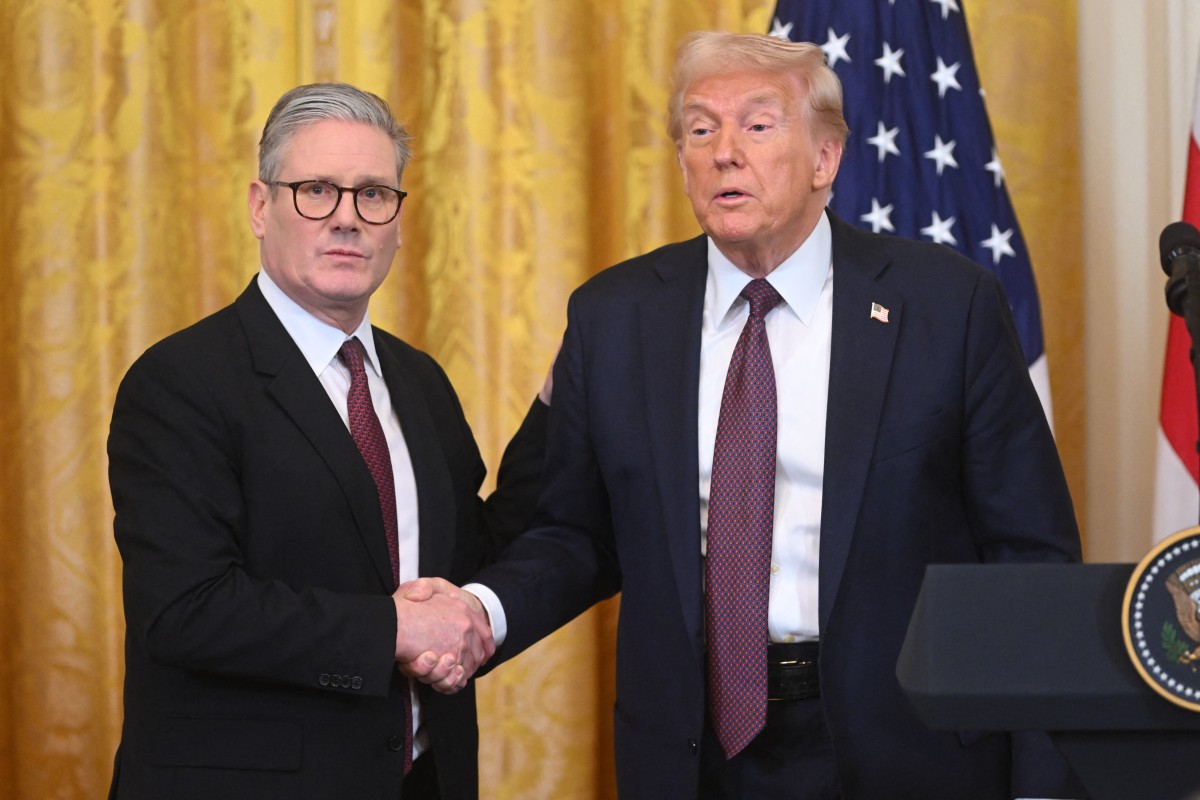Donald Trump expressed confidence in Russian President Vladimir Putin’s commitment to a Ukraine ceasefire on Thursday, even as UK Prime Minister Keir Starmer sought stronger security assurances for Kyiv. In an effort to strengthen ties, Starmer extended an invitation from King Charles III, offering Trump an unprecedented second state visit to Britain.
During their meeting in Washington, Trump struck a cordial tone, even questioning a previous remark in which he had referred to Ukrainian President Volodymyr Zelensky as a dictator. “Did I say that?” he quipped, downplaying the comment that had raised concerns across European capitals.
Despite Starmer’s warnings that a ceasefire without strong backing from the U.S. could embolden Putin to attack again, Trump insisted that the Russian leader would honor any agreement. “I think he’ll keep his word,” Trump stated in the Oval Office, adding, “I’ve known him for a long time. I don’t believe he’s going to violate his word.”
Britain and France have expressed willingness to deploy peacekeeping forces in Ukraine but are seeking U.S. support in the form of aerial and satellite surveillance, as well as potential air power. However, Trump signaled that Britain could largely manage on its own. “They can take care of themselves, but if they need help, I’ll always be with the British,” he remarked.
A Diplomatic Approach
Starmer, emphasizing the need for a lasting peace, told Trump, “I want to work with you to ensure this peace deal endures and that no one breaches it.” He then handed Trump King Charles III’s formal invitation, marking a historic moment as no U.S. president has ever received a second state visit to the UK.
“This has never happened before,” Starmer noted, a clear attempt to strengthen relations amid growing European concerns that Trump may lean toward Russia’s stance in any negotiations.
The invitation came just days after Trump stirred controversy by labeling Zelensky a “dictator without elections.” When asked whether he still stood by the remark, Trump brushed it off with a grin, saying, “Did I say that? I can’t believe I said that. Next question.”

Strategic Agreements and Trade-Offs
Trump is set to host Zelensky at the White House on Friday, where they are expected to finalize a deal granting the U.S. access to Ukraine’s rare minerals—something Trump has demanded as compensation for American military support. However, the agreement is reportedly missing the security guarantees Kyiv had hoped for.
Starmer’s visit follows a similar one by French President Emmanuel Macron, who left Washington without securing firm commitments from Trump, despite optimistic remarks about a “turning point” in U.S.-European cooperation.
A senior U.S. official acknowledged that security assurances were “a top priority for European allies” but emphasized that securing a ceasefire was the immediate focus. “The nature of any peacekeeping force will depend heavily on the terms of the political settlement,” the official explained.
The meeting also highlighted contrasting leadership styles—Starmer, a reserved former human rights lawyer, versus Trump, the outspoken businessman-turned-politician. Despite these differences, Starmer positioned himself as a “bridge” between Trump and Europe on Ukraine-related matters.
To bolster diplomatic ties further, Starmer announced an increase in UK defense spending to 2.5% of GDP by 2027, a move welcomed by U.S. officials. “We’re very pleased by this commitment,” a Trump administration representative noted.
As tensions over Ukraine continue to shape global alliances, the discussions between Trump and Starmer reflect the complex balancing act leaders must navigate to secure both peace and strategic interests.


